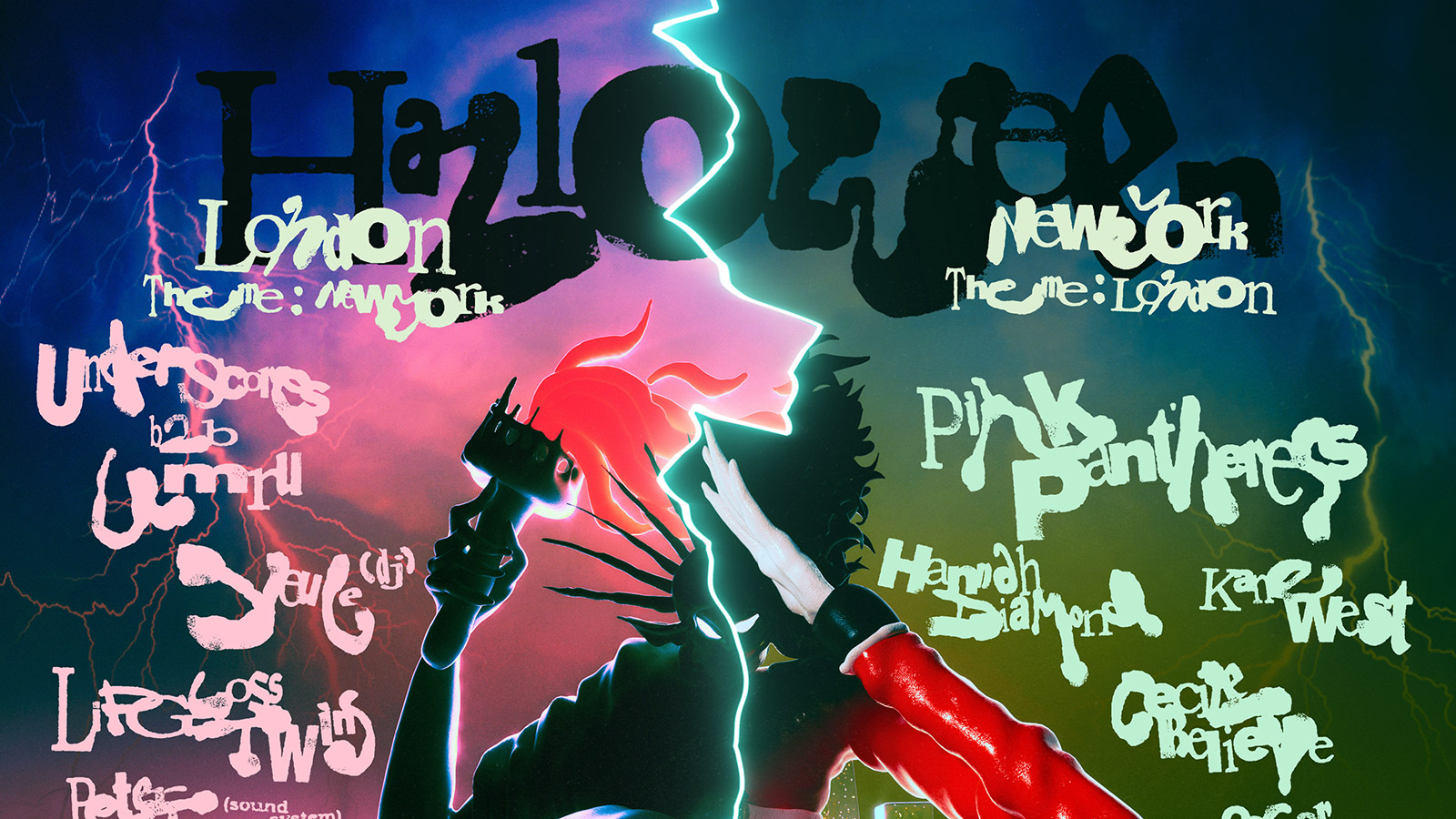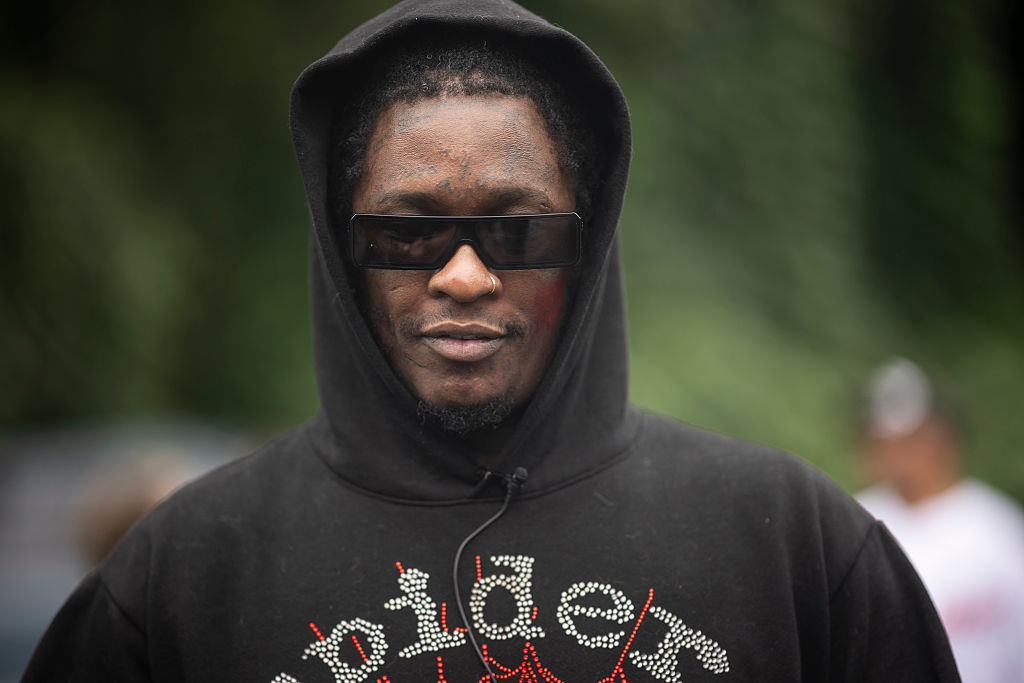

Photography by Frances Carter
Two years ago, Liz Stokes went for a walk around Oakley Creek — the longest urban stream in Auckland. Its Māori language name Te Auaunga means “swirling waters,” once navigable by waka, canoe-style boats, for much of its length. Oakley Creek is green, sprawling, and in the summer months, riddled with mosquitoes.
Wandering on the trail beside the creek, Stokes typed lyrics in a notes app and hummed a slow, gentle melody. “I’m only here to feed mosquitoes / Only skin, only blood / A little less now than there was,” she wrote. Stokes had been struggling with anxiety and anhedonia, side effects of her chronic illnesses. Writing didn’t feel as easy as it used to. She swiped out of the app and forgot about the song for a while.
In spring 2024, on a writing retreat in Los Angeles with guitarist and producer Jonathan Pearce, Stokes lay on a trampoline and thought of Oakley Creek. She thought of the Auckland Anniversary Weekend floods that wrecked the creek the year before, found the chorus she had “semi-abandoned,” and wrote the verses as a narrative body.
“Mosquitoes” is the second track on The Beths’ third record, Straight Line Was A Lie — their first for ANTI-Records (Waxahatchee, Neko Case). It’s a collection of songs for the moments when our bodies and brains don’t work the way we want them to. It’s for reflection, vulnerability, and looking into the future, not feeling one-hundred percent sure. The record follows Stokes through a season of mental and physical health challenges, worrying she’ll never feel like herself again.
Get the Best Fit take on the week in music direct to your inbox every Friday
I meet Stokes on a late-night video call — it’s 10 pm and summer in Philadelphia; the next afternoon in Auckland, deep into New Zealand’s winter. “It’s drizzly, wet, and grey. And the sun sets at five o’clock,” Stokes says. “So, it’s just, kind of, sad.” Nonetheless, Stokes sits in front of the window, with drops of midday sun resting on her glossy black fringe.
Stokes started The Beths in 2014, when she was 23. She had been studying trumpet music at the University of Auckland. “I was like, ‘No trumpet in this band. It’s only gonna be rock music,’” she laughs. She had met Pearce and bassist Benjamin Sinclair in high school through gigging at The Wine Cellar and other alternative venues in Auckland. “Auckland is a city of, like, 2 million people, but its music scene is very tight-knit and quite small,” she says.
The three were sick of jazz, so when Pearce started learning to produce, he asked Stokes to send him a few demos. “He was like, ‘You should write some songs so I can record them,’” she says. “And I was like, ‘Absolutely not.’ A year later, I emailed him four demos I made with Ben’s help.” Drawing inspiration from Weezer, Rilo Kiley, and Angel Olsen, Stokes sought for a combination of post-punk, power pop, and indie rock — succinct, loud guitars, call-and-response vocals, harmonies, and a simple verse-chorus, verse-chorus, bridge-chorus format. “We really enjoyed the limitation of creativity,” she says. “And when you stick yourself in a box, you have to get creative, just with the limited palette that you’re allowed to use.”

The Beths played their first record, Future Me Hates Me, for years before its 2018 release, making structural tweaks along the way. “All of us were playing instruments that weren’t our first instruments. And we were all learning how to sing,” she says. Stokes’ vocals have become among the most recognisable and well-respected in indie-rock music — immediate and matter-of-fact, yet soft and wistful.
Stokes describes Future Me Hates Me as an exploration of writing with vulnerability. “You can hear that I can’t do that without a bit of irony and humour, which I still love. I feel like comedy and tragedy are so tied together that it makes sense to use both at all times.” In the title track, Pearce, Sinclair, and original drummer Ivan Luketina-Johnson meet her self-deprecating lyrics with pure rock and roll — powerful, energetic, and unbelievably catchy.
After the release of Future Me Hates Me, drummer Tristan Deck joined the band. “We cycled through a few different drummers, and Tristan just fit like a glove,” she says. Their first record together was Jump Rope Gazers, written pre-pandemic and released in 2020. Stokes affectionately compares the process of writing and releasing the record to teething; “It was like working out a new way of making music, and then branching out a little bit from the very tight box that we had created.” Unable to spend years testing Jump Rope Gazers on live audiences, Stokes had to trust herself, lifting the veil of high tempos to reveal a side of her artistry she’d been avoiding.
Get the Best Fit take on the week in music direct to your inbox every Friday
The Beths continued to experiment on Expert In A Dying Field, written in 2021 and released in 2022. Stokes centred hypothetical live audiences in her writing, curbing her craving for touring. The primary theme of Expert In A Dying Field is cautious optimism, a common feeling associated with embracing post-lockdown life. The Beths were on fire, touring back-to-back album cycles, mixing old and new sounds, and amassing international popularity. “We pushed ourselves to, maybe, everybody’s individual breaking points,” Stokes says, reflecting on the chaos.
Between 2022 and 2025, Stokes has faced more great change, both hindering and propelling her creativity. She was diagnosed with Graves’ disease and thyroid eye disease, two autoimmune conditions that disrupted her physical abilities. Despite the relief of a diagnosis, Stokes was faced with the emotional weight of chronic illness; “Things are going well as you figure out what’s going on, but then you realise, ‘This thing is chronic, so it doesn’t really go away, and it’s always going to be there,’” she says.
Straight Line Was A Lie confronts the optimism of Expert In A Dying Field with the reality of fear, burnout, and wondering why on earth your SSRI is making you feel numb instead of happy — “when you have a creative thing that’s, in many ways, your outlet, and then it becomes your job,” Stokes says, referring to the initial pressures of making the record. “We were two years between every album, and this is the first one where it was three. It felt like a very big deal.”
Stokes and Pearce took a different approach to creating Straight Line Was A Lie than previous records. “I was very functional; I just wasn’t writing songs,” Stokes says. “So, I was like, ‘Well, maybe I can plan my way into this album.’” After a few months of touring in the States in early 2024, Stokes and Pearce stayed in LA for three months to write.
Much like the record’s throughline, the progress was not linear. Stokes challenged herself to write ten pages of stream-of-consciousness per day. At night, she and Pearce consumed as much media and art as possible: Drive-By Truckers and St. Vincent in concert, Jeff Tweedy’s songwriting books, a Ken Follett novel about WWI, and a list of other comedy shows, TV series, and films she can’t place. She mocks her forgetfulness, unable to remember what she had for lunch that day.
Stokes spent her time in LA, building a world for The Beths’ rawest record yet. “You can have all these inputs going in, which I feel is important when you’re trying to have outputs.” At the end of the three-month retreat, she had 23 demos to bring home to Pearce’s studio on Karangahape Road. The band learned the songs in October and started recording in November.
In the making of Straight Line Was A Lie, Stokes continued to exercise trust in her bandmates, her audience, and, most importantly, herself. “Mother, Pray For Me”, the third single of the record, is a stripped-down message to Stokes’ religious mum. She meditates on grief, regret, and the gaping distance between them. “Mother, will you talk to me? / I don’t know the tongue in which you dream,” she utters, as if this mother and daughter no longer speak the same language.
“Metal” and “No Joy” were the first two singles released from the record, capturing the bilaterality of mental illness. “No Joy” is about anhedonia, the inability to find pleasure in pleasurable activities. The song sounds (and feels) like an early-2000s first day of school: “All my pleasures: guilty / Clean slate looking filthy / This year’s gonna kill me, gonna kill me,” Stokes admits over Sinclair’s thumping bass line.
Directed by Frances Carter, the “No Joy” music video depicts The Beths on a kids’ television show. Shooting on handycam, Carter aimed to create a “sickeningly happy space.” Pearce, Sinclair, and Deck force dim grins, while Stokes plays with model clay and pipe cleaners to forget. She breaks the fourth wall and insists, “I don’t feel sad / I feel nothing.”

The video evokes a Jim Henson-esque whimsy, but the window to the outside world is painted onto the wall. “It was this kind of surrealness of a kids’ show where everything is beautiful and sunny and everybody’s smiling, but it’s all fake,” Stokes says. “It’s that feeling when you’re so deep in anhedonia that even other people’s joy feels not real.”
“Metal” is for the flip side — the shifting gears, the racing thoughts, and the recognition of the bodies we occupy. “And I know I’m a collaboration / Bacteria, carbon, and light / A florid orchestration / A recipe of fortune and time,” Stokes professes in the song’s outro. In the band’s May announcement of the song’s release, she wrote, “Despite all the ways that this thing feels like a broken machine, I still marvel at the complexity of such a machine.”
This same complexity trickles into the Straight Line Was A Lie album art. Lily Paris West, who composed the iconic collaged fish and playful lettering of Expert In A Dying Field, designed the record’s logo and iconography. The cover features a warped clock, with its numbers replaced with colourful objects: a radish, a dove, a knotted rope, and a pink fish. The hands of the clock are fashioned with sticks and flowers.
“A big concept behind the little objects is that Lily made a lot of them out of papier-mâché. She wanted to make something where you could see the work,” Stokes says. “Like, you can just take a photograph and capture something, but we’re a band that toils over everything. We overthink everything… Yes, it’s a still image, but you can see the fingers on it.”
As The Beths near the release of their fourth studio album and a months-long tour, Liz Stokes reflects on learning complete vulnerability in her writing. “I wanted to express how I’m feeling, but I didn’t want to embody it because it’s hard to ask somebody to sit and listen to you say something,” she says. “It demands a bit more attention when you’re going to go to those quiet places,” she says.” Now, she’s leaned into sharing these deep-seated emotions — with and without slashing guitar and punchy drums.
Straight Line Was A Lie is a tribute to the human machine — the days it updates, lags, and takes a second to reload. When the clock warps and the record slows down, I encourage you to give The Beths your attention. Sit with them and listen.
Straight Line Was A Lie is released 29 August via ANTI-Records

 3 weeks ago
13
3 weeks ago
13


















 English (US) ·
English (US) ·